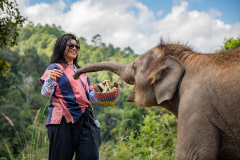Archives
Categories
Recent Posts
- Frontline Heroes: The Brave Mission to Rescue Animals in Ukraine
- Meet The Team: Lisa Amerongen – Managing Director
- Announcing Our 2024 Animal Photojournalism Fellows
- Our Top 10 Images For World Ocean’s Day
- Announcing Our 2024 Animal Photojournalism Fellows
- Life was on our side: The hens who got a second chance
- Beekeeping and Honey Production in Türkiye
- Our Top 10 Images For World Day For Laboratory Animals
- Our Top 10 Images For Earth Day
- Avian Flu in the Era of Big Ag





















